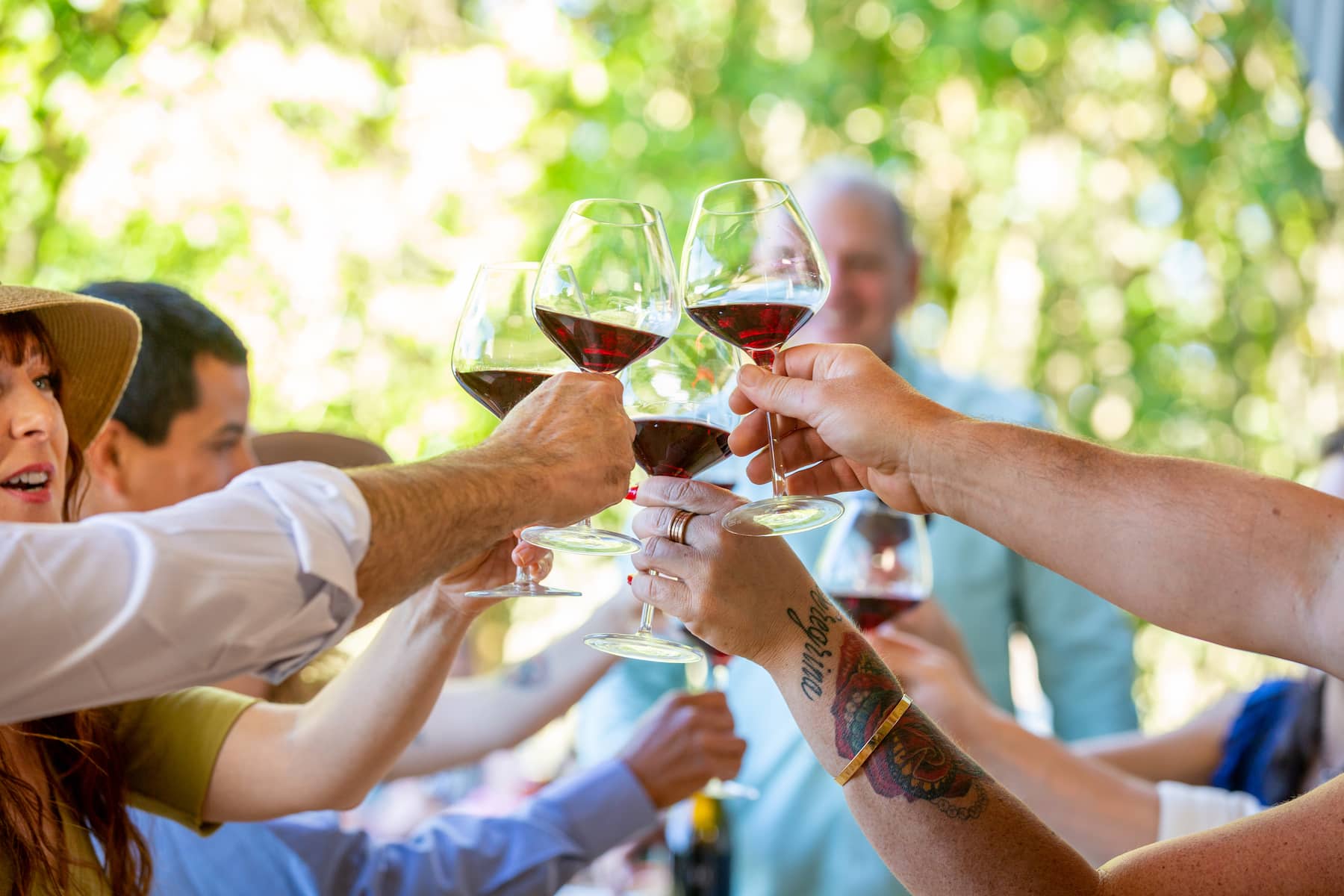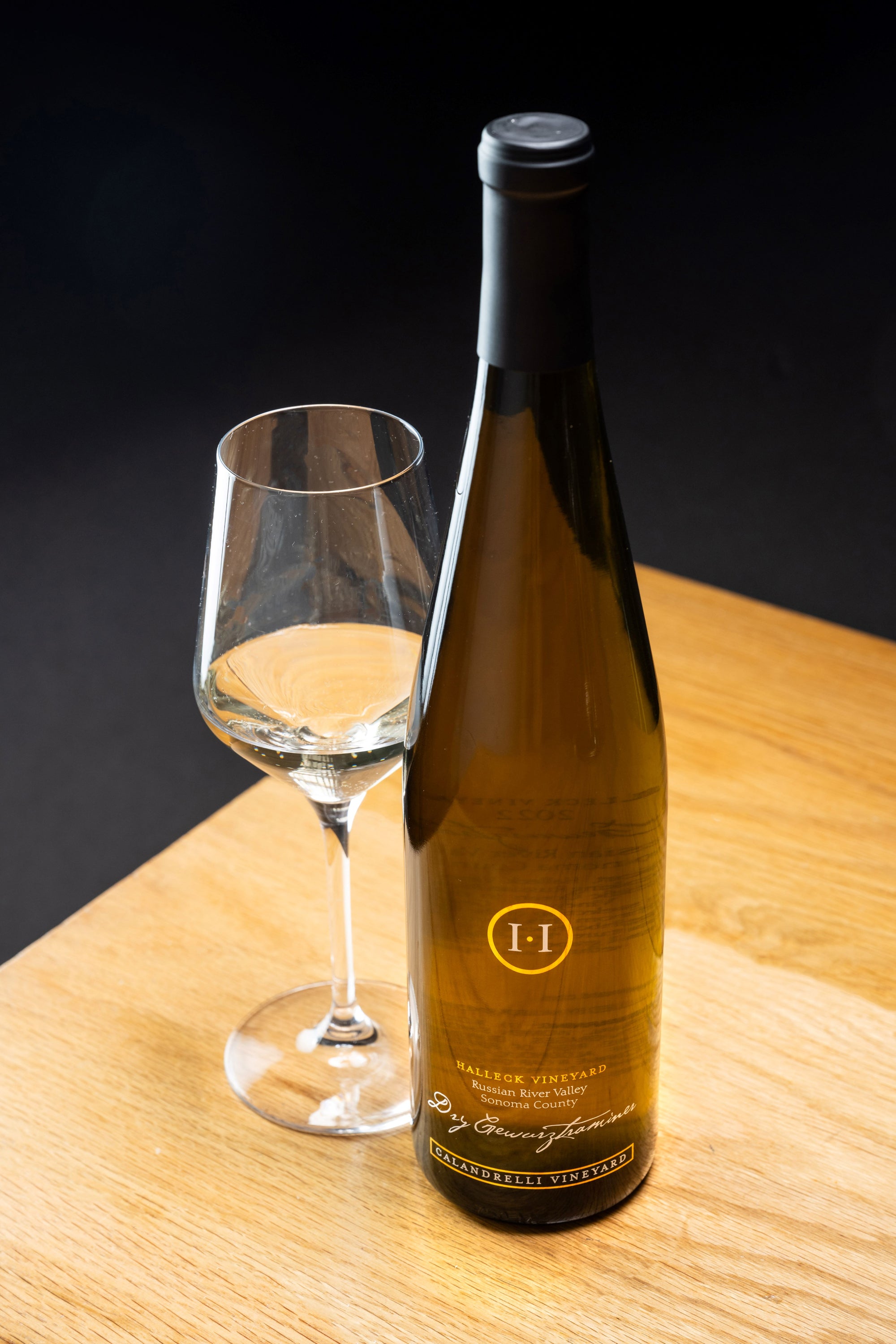Wineries That Welcome Walk Ins - Top-Rated Wineries In Sebastopol
Visiting a winery for a wine tasting may be an enchanting experience, especially when you understand how to maximize the opportunity with tasting notes. These notes serve as a guide to understanding the complexities of the wines you sample and help in forming a deeper connection with each pour. Utilizing tasting notes can transform your experience, allowing you to savor not just the taste but also the story behind every bottle.
Every wine has a novel profile influenced by grape selection, terroir, and winemaking techniques. Understanding these parts can enhance your appreciation of the wine. When you might be given a tasting menu or a flight of wines to pattern, take the time to learn via any descriptions offered (Eco-Friendly Wineries In Sonoma County). This initial overview can set the tone and expectations for your tasting experience.
Begin your wine tasting by observing the wine in your glass. The colour can reveal so much about the wine’s age and varietal. Take notes on the hue, readability, and viscosity. A well-structured tasting note usually includes this visual evaluation because it types the muse of your evaluation. While it might appear trivial, the visual facet is essential in wine tasting.
Wineries Near Highway 12 - Sonoma Wine Tasting Adventures
After your visible assessment, it is time to take a mild whiff. Swirl the wine in your glass to aerate it, releasing its aroma. This is where tasting notes turn into notably priceless. Make notes concerning the different scents you detect—fruits, spices, or floral hints. Figuring Out these aromas will assist you to put words to the intrinsic complexities of the wine you're sampling.

The subsequent essential step is the tasting itself. Take a small sip and let the wine roll over your palate. Note the flavors you experience. Are they sweet or tart? Where does your palate detect every flavor? Some wines could current quick sweetness followed by a tannic end. Use your tasting notes to document these layers, making a roadmap of your sensory experience.
Think About also the mouthfeel of the wine as you style. Is it easy, crisp, creamy, or maybe tannic? This textural quality considerably influences the general enjoyment and impression of the wine. Observing the mouthfeel can reveal the quality and craftsmanship behind the winemaking course of.
It's beneficial to check completely different wines as you taste them. If you are sampling a flight with contrasting varietals, make a note of the differences you perceive. How does the acidity differ from one wine to another? Which wine feels fuller, and which is extra refreshing? This comparative exercise deepens your understanding and helps sharpen your analytical skills.
Wineries With Artisan Chocolate Pairings In Sonoma - A Guide To Sonoma Wineries
Interact with the winery workers while tasting. Educated hosts usually share insights about the vineyard's history, the particular vintage, or the winemaking philosophy, enriching your appreciation of the wine. Do Not hesitate to ask questions that pique your interest based mostly in your tasting notes. Many hosts enjoy discussing their wines and may provide a wealth of knowledge that isn’t readily available from printed materials. Wineries With Unique Tasting Experiences.
Hold in mind the seasonality of wines as you style. Completely Different wines evoke varied moods and pair properly with distinct culinary Bonuses experiences. Take notes on the way you might take pleasure in a selected wine with food. This not only adds context to your tasting notes but in addition aids future alternatives and purchases.

Another useful tip while using tasting notes at a winery is to report your impressions instantly. As wines can mix and create a uniform flavor reminiscence, jotting down your thoughts promptly ensures a more accurate reflection of your experience. Use adjectives that resonate with you, crafting a personal vocabulary to describe every wine based on your preferences.
After completing the tasting, evaluate the notes you’ve taken. Mirror on which wines stood out to you and why. This reflection reinforces your tasting experience and highlights what you would possibly seek in future purchases. If you've got noted particular aromas or flavors that captivated you, this information empowers you to choose out wines that align with your palate.
Hidden Gem Wineries In Sonoma County - Exploring The Vineyards In Sonoma County
Wine tasting can also function a chance for socializing. Sharing your tasting notes with companions can ignite partaking discussions on flavors, preferences, and impressions. This communal aspect of wine tasting often enhances the experience, cementing lasting reminiscences that you could recall with a cup of wine in hand.
In conclusion, utilizing tasting notes at a winery wine tasting can significantly improve your experience. By observing the visible aspects, aromas, flavors, mouthfeel, and even the stories behind the wines, you create a wealthy tapestry of notes that can guide your future wine experiences. Participating with the staff, comparing wines, and reflecting in your impressions will deepen your appreciation for the art of winemaking. Each tasting is a chance to discover and connect with wines in thrilling new methods. With practice, your tasting notes will evolve, turning into a cherished element of your wine journey.
Wineries That Host Harvest Festivals - Sonoma Wine Tasting Tour
- Begin by familiarizing yourself with the winery's tasting notes; they usually describe the wine’s aroma, flavor profile, and end, providing a helpful framework.
- Use your senses of sight and scent before tasting; swirl the wine in your glass, observe its shade, and inhale its bouquet to seize the wine's initial characteristics.
- When tasting, take a small sip and let the wine coat your palate; give consideration to the primary flavors and any secondary notes which will emerge, similar to fruit, spice, or earthiness.
- Pay attention to the texture and mouthfeel of the wine; is it clean, tannic, creamy, or crisp? This facet can significantly improve your understanding of the wine.
- Compare the tasting notes with your sensory experience, noting any similarities or discrepancies, which can deepen your appreciation of every wine’s complexity.
- Think About the wine’s getting older potential by analyzing its structure and balance; some wines may be gratifying now, whereas others might evolve beautifully over time.
- Take notes in the course of the tasting; recording your impressions may help you remember every wine better and refine your palate for future tastings.
- Engage with the tasting staff; ask questions in regards to the wine manufacturing process, grape varieties, and the specific notes you are detecting to enhance your information and experience.
- Discover pairing recommendations alongside your tasting; understanding which foods complement the wine can enrich each the tasting experience and your appreciation for the wine's nuances.
- Respect varying preferences amongst your group; wine tasting is subjective, and encouraging open dialogue about individual tastes can result in a more enjoyable and informative experience.undefinedWhat are tasting notes, and why are they important at a wine tasting?undefinedTasting notes are descriptions of the flavors, aromas, and total impressions of a wine. They are necessary as a end result of they guide your palate and improve your understanding of the wine's traits, helping you appreciate completely different varieties and styles.
How ought to I take notes during a wine tasting?undefinedYou should give consideration to key parts corresponding to aroma, flavor, body, acidity, and end. Use a structured format or template to categorize your thoughts and write down your impressions instantly after tasting. This click here for more info helps you bear in mind your ideas later.
Am I Able To use my own words to describe a wine, or should I stick to plain tasting terms?undefinedYou can completely use your own words to describe a wine. While normal tasting terms may help convey specific qualities, personal descriptors add authenticity to your notes and might make your wine experience extra gratifying and relatable.
Should I focus on particular flavors in the wine or the general experience?undefinedBoth aspects are important. Whereas particular flavors assist you to determine the distinctive characteristics of a wine, the general experience encompasses how all elements combine—creating a extra holistic understanding of the wine.
Wineries Near Santa Rosa - Vines And Views In Sonoma Wine Country
What if I cannot determine certain aromas or flavors throughout a tasting?undefinedIt’s widespread to have difficulty figuring out specific tastes or scents. Don’t hesitate to ask for assist or steerage from the staff on the winery. They can provide insights and assist refine your palate over time via practice.
How can I use tasting notes to choose wines within the future?undefinedBy reviewing your tasting notes, you'll have the ability to establish your preferences and tendencies in your wine decisions. This allows you to choose wines that align with your palate in future tastings and purchases, making your experience more gratifying.
Is it appropriate to match wines throughout a tasting?undefinedSure, comparing wines could be useful. It helps highlight the differences in flavor profiles and attributes, permitting you to develop a deeper appreciation and understanding of each wine's distinctive qualities.
What should I do if I disagree with the tasting notes supplied by the winery staff?undefinedDisagreement is a natural a part of wine tasting! Use it as an opportunity to discuss your impressions with the workers; they will present additional context or details about the wine, which can enrich your experience.
Wineries Hosting Seasonal Events - Sonoma Vineyard Tours
How should I manage my tasting notes after the event?undefinedAfter the tasting, arrange your notes by wine type, producer, or personal choice. Consider making a digital or physical journal which could be referenced for future tastings and wine selections, making it simpler to recall your experiences.
Comments on “Exclusive Wine Clubs In Sonoma - Discovering Sebastopol's Wineries”